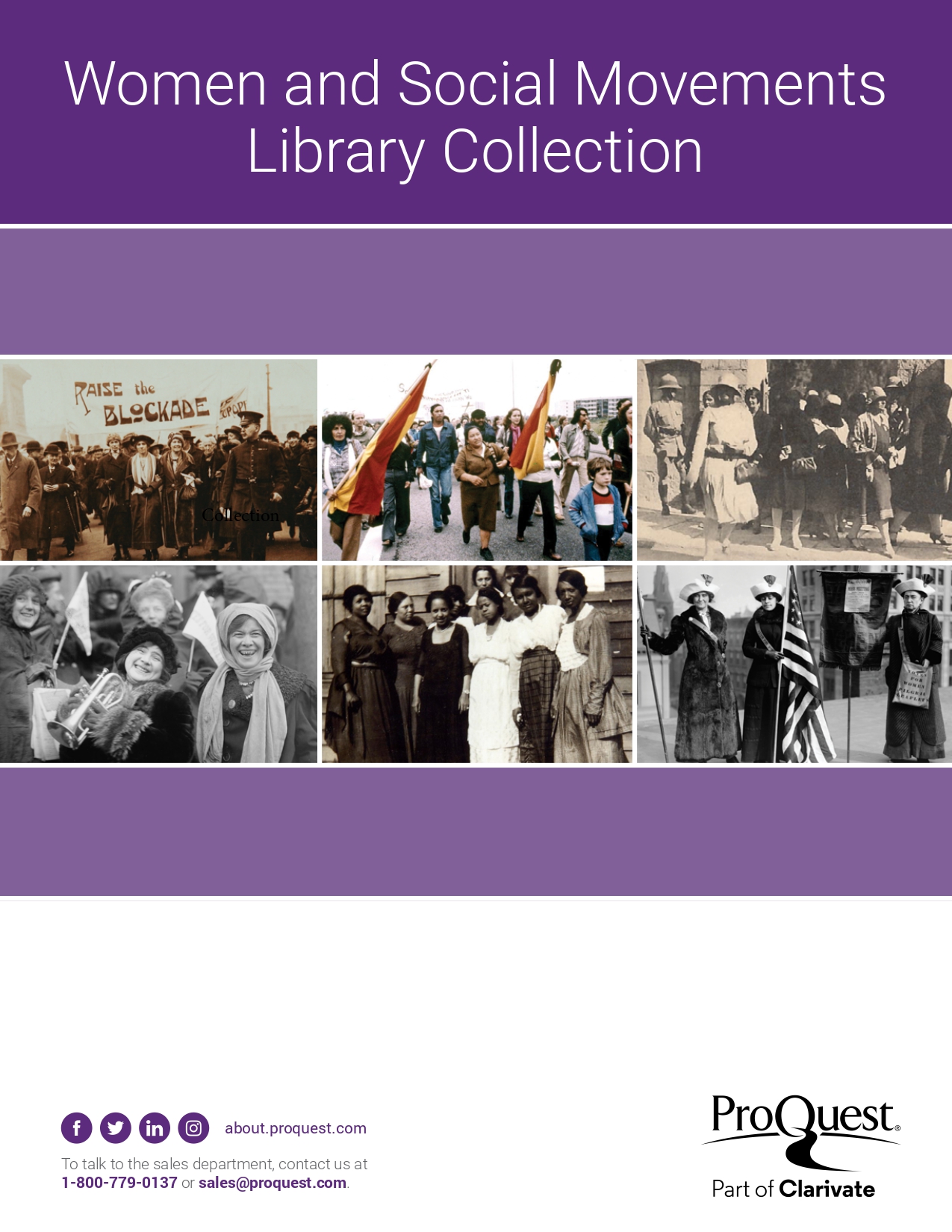
Food Studies Online
Food Studies Online is a first-of-its-kind database, bringing together rare and hard-to-find archival content with visual ephemera, text, and video. Food studies is a relatively new field of study, and its importance is felt in many major disciplines. It has social, historical, economic, cultural, religious, and political implications that reach far beyond what is consumed at the dinner table.
Food, and its place in the study of culture, economics, business, politics, and the process of globalization cannot be overstated.
Alexander Street's new collection, Food Studies Online, is a first-of-its-kind database, bringing together rare and hard-to-find archival content with visual ephemera, text, and video. Food studies is a relatively new field of study, and its importance is felt in many major disciplines. It has social, historical, economic, cultural, religious, and political implications that reach far beyond what is consumed at the dinner table.
Who will use it?
Food studies is interdisciplinary, but is of primary interest to social scientists and students of policy and business. Key themes and disciplines with extensive coverage represented include:
- Marketing and Consumerism
- Production and Technology
- Food History
- Food Movements
- Culinary and Food Design
- Food and Identity
- Health
- Policy
- Religion
- Sociology
- Anthropology
- History
What's in it?
Food Studies Online includes 100,000 pages of primary archival materials, images, and secondary works, plus a curated selection of documentaries and series. View the advisory board that helped create this collection.
Content highlights

National Archives - Records related to the school lunch program 1940-1973 - Government documents related to the US school lunch program in the mid-20th century. Documents include recipes used in school cafeterias, pamphlets about ending hunger in schools, and educational pamphlets on how to create healthful school lunches. Also includes factbooks with statistics of the national school lunch program in the 1950s.

National Archives - WWII Food Campaign Files, 1941-1948 - Documents, pamphlets and posters from the government’s food campaigns during WWII, including the rationing campaign "No Point-Low Point," Food Fight for Freedom Campaign, Fat Salvage Campaign and Victory Garden Campaign. Documents. Full color posters show how campaigns were advertised. Includes packets of instructional materials for housewives who want to hold their own cottage meetings on conserving food during the war.
The Cheese Reporter (1929-2014) - Alexander Street is the only place to find the complete digitized run of The Cheese Reporter, a trade magazine from Wisconsin that has been publishing about the dairy industry since 1928. Issues cover news and national trends in food safety, pricing, pasteurization, food policy, and agriculture. This publication offers a historical perspective of industry in America and was previously only available in full at the Wisconsin Historical Society.
Recently released: For the first time ever, scholars have access to issues from the Great Depression and WWII eras.
Food Ephemera Collection - Over 5,000 pages of ephemeral materials from the turn of the century through the 1960s. The collection is made up of educational pamphlets from food production companies as well as food labels, food advertisements, and recipe books. Brands include Jello, Quaker Oats, Libby, Kellogg, and more. These materials give insight into the history of food and gender roles, foodways, food trends, food geography, and food and race.
Additional text highlights
- Bringing the Food Economy Home: Local Alternatives to Global Agribusiness by Helena Norberg-Hodge (Lynne Reinner)
- Feast: Why Humans Share Food by Martin Jones (Oxford University Press)
- Food in Zones of Conflict by Paul Collinson and Helen Macbeth, editors (Berghahn)
Recently Added Content

10,000 pages of new archival content from the National Archives, Kew
New archives related to British WWII rationing, food programs, and labor programs including the Women’s Land Army. This content pairs well with archival documents from the National Archives (US) that cover WWII rationing and food programs in the US, making this a comprehensive collection of documents on rationing that’s vital for anyone researching food and WWII.
10,000 pages of historic diet books from the 1900’s to 1960’s
Trace the growth of the diet industry across the early half of the 20th century with more than 10,000 pages of historic diet books and magazines.
13,000 pages of monographs
Publishers such as Cambridge University Press, Cornell University Press, Lynne Rienner, Berghahn, Wiley, and Princeton University Press. These books cover major topics relevant to the food studies and development student, including food movements, agriculture, food security, food in zones of conflict, supply chains, and food law.
Supplementary Video Titles
Key documentaries, that address contemporary food issues including organic farming, pesticide use, the slow food movement, fair trade, and food security, as well as videos related to gastronomy that show how people grow, cook, and eat food around the world.Recent titles include:














